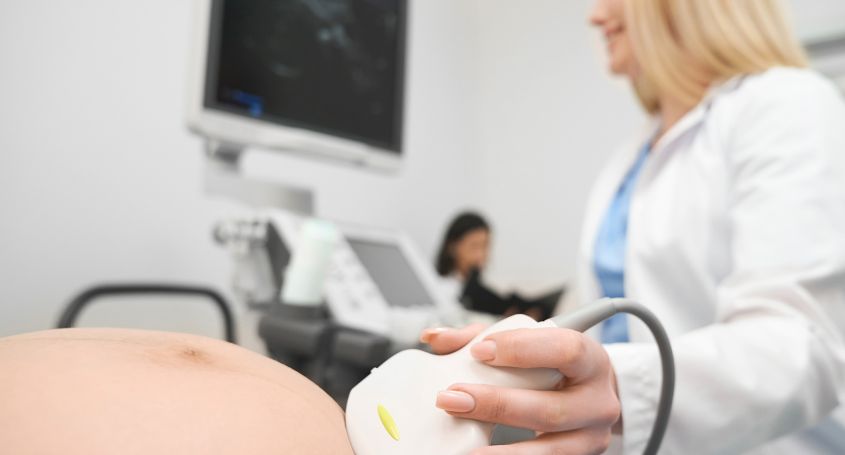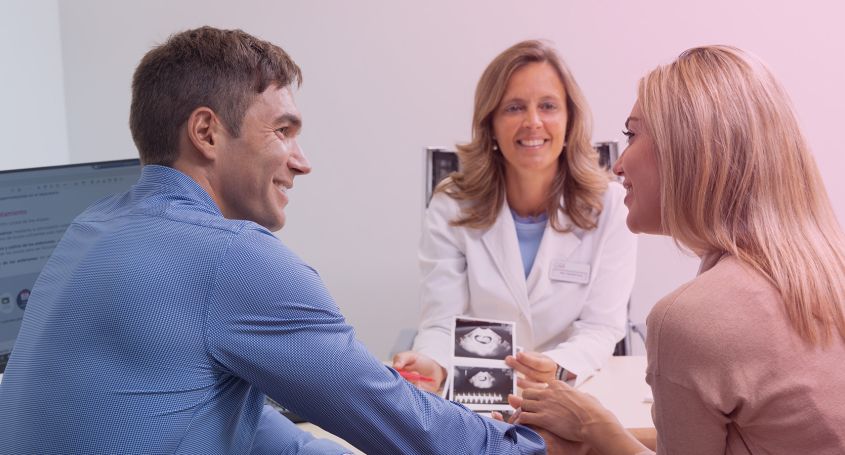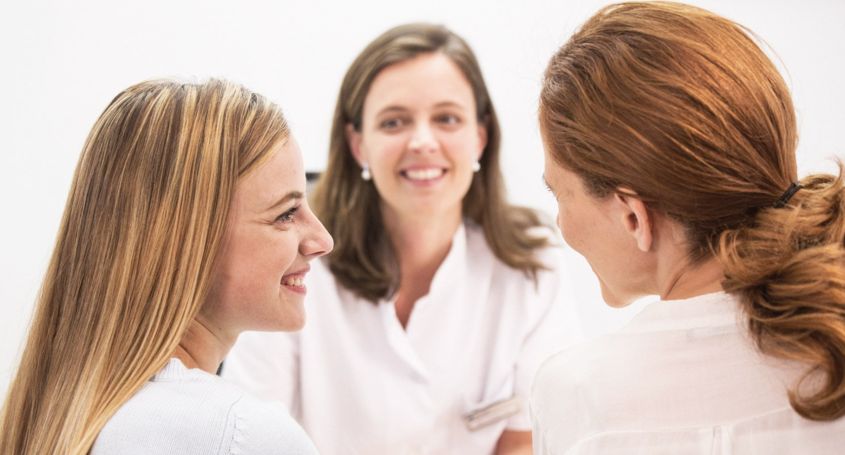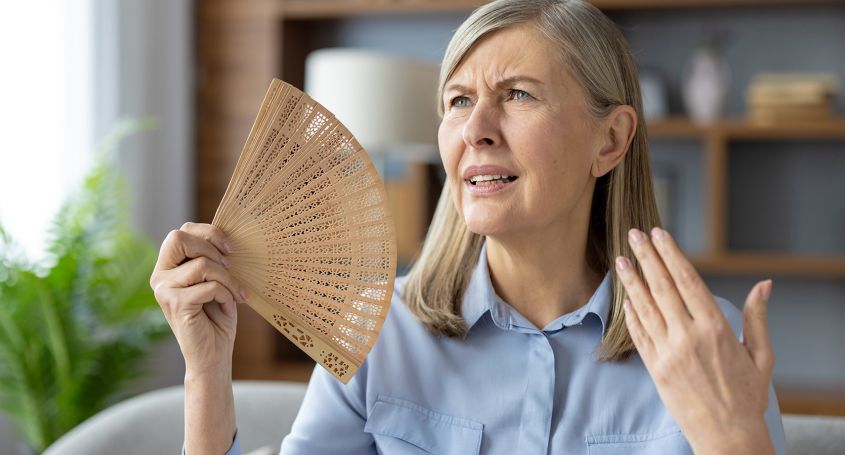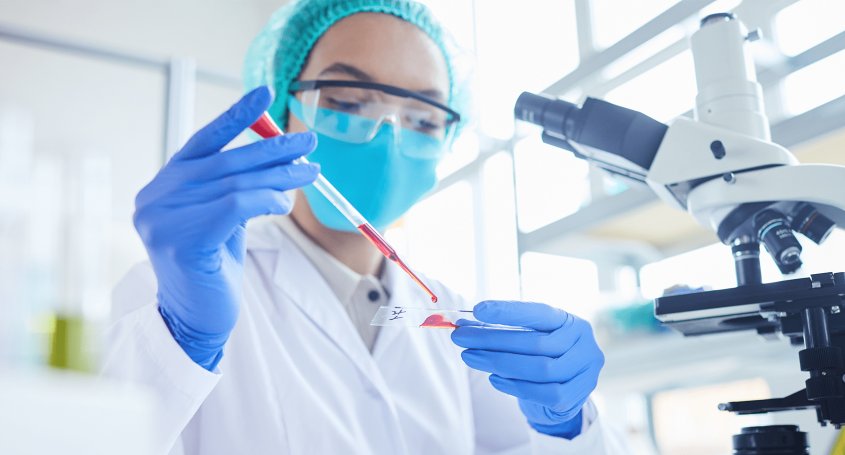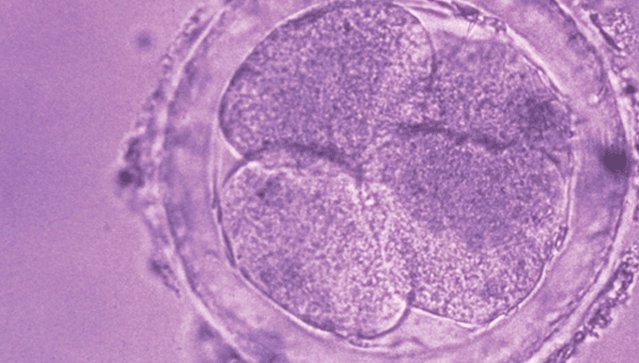 Egg Donation
Egg Donation is an In Vitro Fertilization in which oocytes, donated by another woman, are used. This is the ultimate solution for cases when women can’t produce oocytes or their oocytes are of poor quality.
Advantages of egg donation
•
Simplicity: despite being an In Vitro Fertilization, the preparation is very simple for the recipient woman as she does not have to undergo an ovarian stimulation.
•
Efficiency: egg donation offers the best pregnancy rates due to the fact that it is an In Vitro Fertilization and oocytes from a woman under 35 years are used.
Egg Donors
The donors are young women, usually between 20 and 30 years old, who in an act of solidarity decide to donate their oocytes to women who need them in order to achieve pregnancy.
Egg donors must be in a good physical and mental health. The tests that are performed include a psychological evaluation, physical examination and analyses in order to discard infectious diseases and genetic abnormalities (Karyotype).
How does egg donation work?
The procedure to be followed for egg donation can be summarized in 4 steps:
Selection and synchronization of the Donor:
The selection of the donor is based on the closest matching taking in account the blood groups and the physical characteristics of the recipient couple. After having selected the donor, the cycles from the donor and the recipient woman are synchronized in order to obtain the oocytes synchronously, this means without the need of freezing them.
Egg retrieval and endometrial preparation
The
egg donor will undergo an ovarian stimulation and the oocytes are obtained by performing a follicular puncture. At the same time, the recipient woman is preparing her endometrial lining with estrogens administrated either orally or subcutaneously.
In Vitro Fertilization and embryo culture in the Laboratory
From the moment on, when the oocytes are obtained from the donor, the oocytes belong the recipient couple and In
Vitro Fertilization treatment is performed (IVF) with the sperm of the partner or sperm from a donor. The obtained
embryos are put in an incubator and left in culture until they are transferred.
Embryo Transfer
The embryo transfer is performed likewise in an
In Vitro Fertilization with own oocytes.The embryo transfer is performed by channeling the cervix with a catheter through which are placed the embryos into the endometrial cavity. It is a simple procedure, performed on an outpatient basis and does not require anesthesia. Shortly after the transfer is performed it is recommended to rest at home or in the hotel.
Egg Donation: Success
The success rate of egg donation is above 72% and does not depend on the woman’s age, which makes it the best option for achieving pregnancy in women above the age of 43 years.
Where does the sperm come from?
Egg donation can be performed with the partner’s sperm o sperm from a donor.
• Egg donation with the partner’s sperm is recommended in those cases where the problem lies in the oocytes, either because they are not produced or because of poor quality. This case is usually associated to a woman’s age over 40 due to the physiological decline in female
fertility.
•
Egg donation with sperm form donor is performed when we face a problem with both gametes: oocytes and spermatozoids. It is also recommended for single women who want achieve pregnancy but their own oocytes can’t be used.
 Egg Donation is an In Vitro Fertilization in which oocytes, donated by another woman, are used. This is the ultimate solution for cases when women can’t produce oocytes or their oocytes are of poor quality.
Egg Donation is an In Vitro Fertilization in which oocytes, donated by another woman, are used. This is the ultimate solution for cases when women can’t produce oocytes or their oocytes are of poor quality.
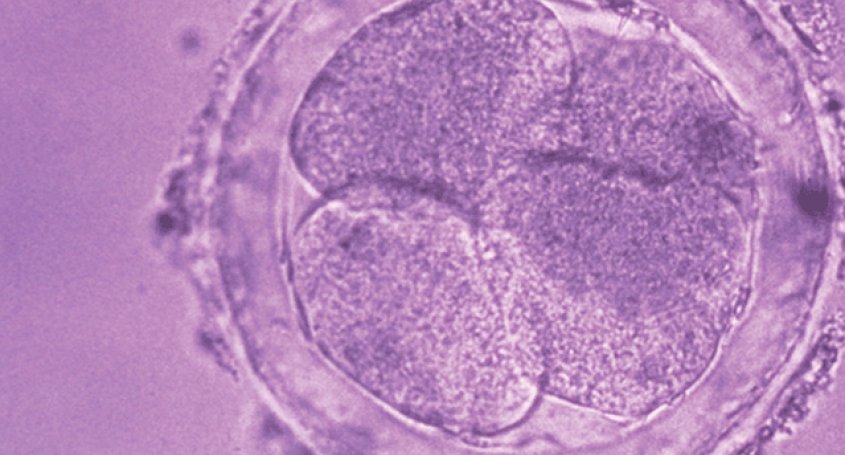
 Egg Donation is an In Vitro Fertilization in which oocytes, donated by another woman, are used. This is the ultimate solution for cases when women can’t produce oocytes or their oocytes are of poor quality.
Egg Donation is an In Vitro Fertilization in which oocytes, donated by another woman, are used. This is the ultimate solution for cases when women can’t produce oocytes or their oocytes are of poor quality.

